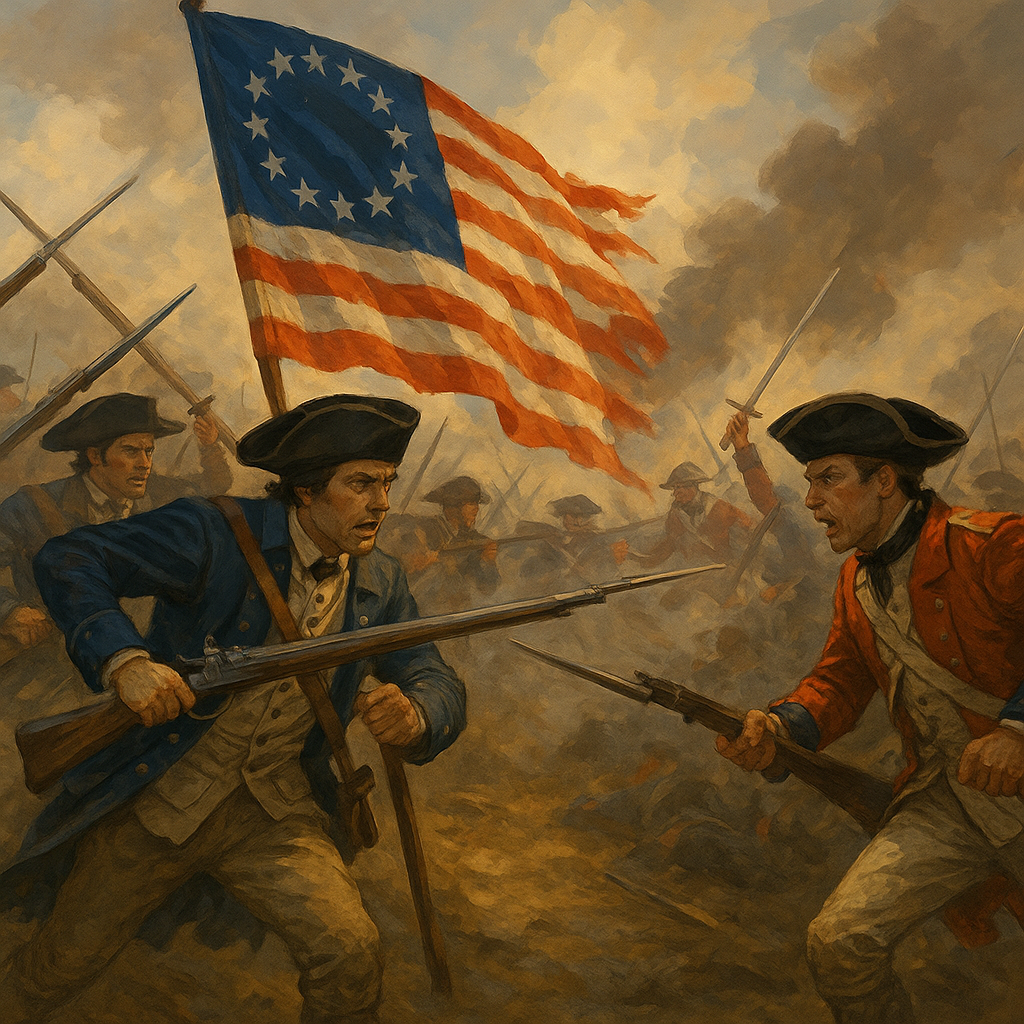Of Kings, Constitutions, and Parades

Yesterday was a normal weekend day for me. I relaxed and played one of my favorite PC games. I also spent some time troubleshooting my Python weather bot — a little project I built just to post local weather updates from my house. But this post isn’t really about that.
While relaxing, I ended up watching and reading about a few things: the No Kings protests, the U.S. Army's 250th birthday parade, and — from across the pond — the Trooping the Colour (yes, with the British spelling).
Watching the coverage of both the American and British military events, a few things struck me as uniquely American. In the U.S., the military plays a big role in society, but it's different from the role it plays in the United Kingdom. Ever since the Vietnam War and the disgraceful way many service members were treated afterward, American attitudes toward the military have shifted. That change became even more pronounced after September 11, 2001, when respect for the armed forces surged — and that respect largely continues today.
That said, I worry that under the current administration, the military is being redefined more as a domestic police force than a national defense institution. If that perception continues, the hard-earned respect for the military might erode. I hope I’m wrong.
In American culture, we formally honor military service during Memorial Day and Veterans Day, with a somewhat quieter Military Appreciation Month in May. While we also celebrate Independence Day on July 4th, it’s more about our nation’s founding and freedom from monarchy than a military holiday per se.
I’ve never been to the United Kingdom, so some of this may be off — I’m basing it on what I’ve seen on YouTube and what I learned in history classes. But the impression I get is this: in the U.K., the military isn’t just honored — it’s woven into the national identity. Unlike the U.S., which celebrates national holidays like Thanksgiving, Labor Day, or Independence Day, the U.K. seems to celebrate through ceremonies and events tied to military history, royal anniversaries, and traditional pageantry — like Trooping the Colour, Remembrance Day, and the changing of the guard. Their military parades, steeped in tradition, make ours look minimal by comparison.
In the U.K., the armed forces swear allegiance not to a constitution but to the King — currently King Charles III. That’s a key difference. In the U.S., service members swear an oath to uphold the Constitution and follow the lawful orders of the President as Commander-in-Chief. That constitutional foundation — not loyalty to a person — is what sets the U.S. military apart. Sadly, I think some of that foundational principle is being lost today, both by military leadership and elected officials, as political polarization increases.
I find it fascinating that the U.K. doesn’t have national holidays like a “Magna Carta Day.” After all, the Magna Carta is one of the most seminal documents in world history — the first to formally limit the power of a king, a figure once considered almost god-like. You’d think that would be a major holiday. Nor do they have anything quite like Thanksgiving or Labor Day to honor gratitude or the contributions of working people. Instead, from what I’ve seen, many of their national events center around military achievements, royal ceremonies, and traditions rooted in conquest and empire.
In my opinion, a lot of the world’s current instability — particularly in the Middle East and parts of Asia — can be traced back to the way the British Empire collapsed. Rather than transitioning peacefully into independent and self-governed nations, many former colonies were left in a state of disarray, with poorly drawn borders, unresolved conflicts, and power vacuums that fueled decades of unrest. The end of the empire wasn’t so much a graceful handoff as it was an uncontrolled unraveling — and we’re still seeing the consequences today.
I suppose that’s fitting. The United Kingdom was once the most powerful and expansive global empire the world has ever known. While America isn’t a global empire in the traditional colonial sense, it has certainly played a role in ending empires — which feels right, given the Independence Day we’ll celebrate in a few weeks, marking 249 years since our break from monarchy.
My final thought: if there's one thing we could take a cue from, it's how the British approach military celebrations, parades, and pageantry. They do it with precision, pride, and a deep sense of tradition. There’s something to admire in that — and maybe it’s time the United States took a few lessons in how to put on a proper military parade.
#NationalIdentity #CivicReflection #WeekendThoughts #Commentary